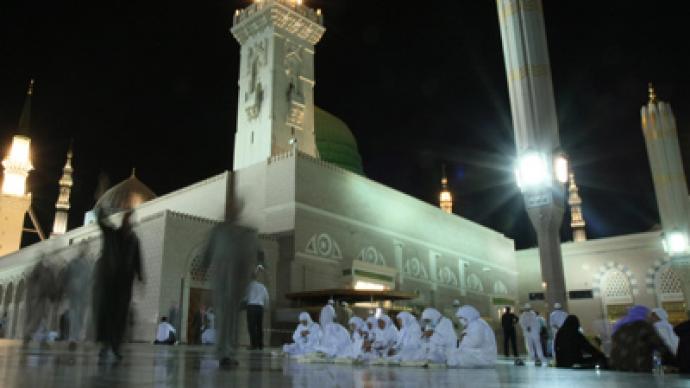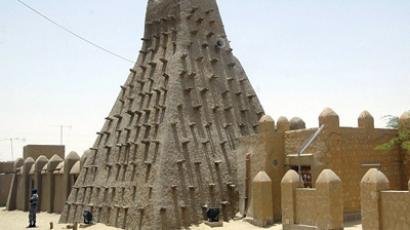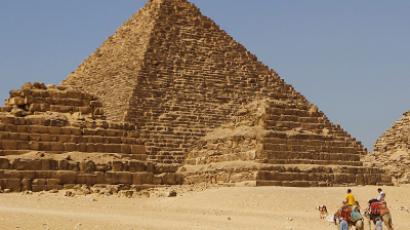Saudi Arabia plans $6bln makeover for second holiest site in Islam

A key Islamic heritage site in Saudi Arabia, which includes the Prophet Mohammed’s shrine, is to get a regal makeover. The Gulf Kingdom plans a $6 billion expansion of Medina’s holy Masjid an-Nabawi Mosque.
Work on the Masjid an-Nabawi in Medina, is planned to start as soon as the annual Hajj pilgrimage comes to a close at the end of November.
“After the Hajj this year, in one months’ time, the bulldozers will move in and will start to demolish the last part of Mecca, the grand mosque which is at least 1,000 years old,” Dr. Irfan Alawi of the Islamic Heritage Research Foundation, told RT.
After the reconstruction, the mosque is expected to become the world’s largest building, with a capacity for 1.6 million people.
And while the need to expand does exist as more pilgrims are flocking to holy sites every year, nothing has been said on how the project will affect other historical sites which surround the mosque.
Concerns are growing that the expansion of Masjid an-Nabawi will come at the price of three of the world’s oldest mosques which are located nearby. The expansion project is set to cost 25 billion SAR (more than US $6 billion), and will reportedly require the razing of the holy sites which date back to the seventh century.
The Saudis insist that colossal expansion of both Mecca and Medina is essential to make a way for the growing numbers of pilgrims. Both Mecca and Medina host 12 million visiting pilgrims each year and this number is expected to increase to 17 million by 2025.
Authorities and hotel developers are working hard to keep pace, however, the expansions have cost the oldest cities their historical surroundings as sky scrapers, luxury hotels and shopping malls are being erected amongst Islamic heritage.
A room in a hotel or apartment in a historic area may cost up to $ 500 per night. And that’s all in or near Mecca, a place where the Prophet Mohammed insisted all Muslims would be equal.
“They just want to make a lot of money from the super-rich elite pilgrims, but for the poor pilgrims it is getting very expensive and they cannot afford it,” Dr. Irfan Al Alawi said.
Jabal Omar complex – a 40 tower ensemble – is being depicted as a new pearl of Mecca. When complete, it will consist of six five star hotels, seven 39 story residential towers offering 520 restaurants, 4, 360 commercial and retail shops.
But to build this tourist attraction the Saudi authorities destroyed the Ottoman era Ajyad Fortress and the hill it stood on.
The Washington-based Gulf Institute estimated that 95 percent of sacred sites and shrines in the two cities have been destroyed in the past twenty years.
The Prophet’s birthplace was turned into a library and the house of his first wife, Khadijah, was replaced with a public toilet block.
Also the expansion and development might threaten many locals homes, but so far most Muslims have remained silent on the issue.
“Mecca is a holy sanctuary as stated in the Quran it is no ordinary city. The Muslims remain silent against the Saudi Wahhabi destruction because they fear they will not be allowed to visit the Kindom again,” said Dr. Al Alawi.
The fact that there is no reaction on possible destruction has raised talks about hypocrisy because Muslims are turning a blind eye to that their faith people are going to ruin sacred sites.
“Some of the Sunni channels based in the United Kingdom are influenced by Saudi petro dollars and dare not to speak against the destruction, but yet are one of the first to condemn the movie made by non Muslims,” Dr. Al Alawi said.














